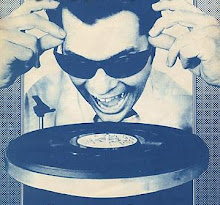.jpg) In the turbulent summer of July, 1967, folksinger and Elektra recording artist Tim Buckley was booked to play Detroit's Grande Ballroom, run by "Uncle" Russ Gibb. Back in the day, it was not uncommon for musicians to accept Gibb's invitation to stay at his place while in town. So it was that Buckley and his Afro-American drummer, Carter Collins, found themselves at a Sunday picnic organized by their host and held at Kensington Metropolitan Park (to the northwest of Detroit along I-96).
In the turbulent summer of July, 1967, folksinger and Elektra recording artist Tim Buckley was booked to play Detroit's Grande Ballroom, run by "Uncle" Russ Gibb. Back in the day, it was not uncommon for musicians to accept Gibb's invitation to stay at his place while in town. So it was that Buckley and his Afro-American drummer, Carter Collins, found themselves at a Sunday picnic organized by their host and held at Kensington Metropolitan Park (to the northwest of Detroit along I-96).Returning from their day outing, the three surprisingly found the streets blocked when they got to the intersection of Greenfield Road and Grand River Avenue. It was then that the police informed them that parts of the city were in flames, that it was unsafe to proceed past the boundary at Eight Mile Road that had been established by the National Guard.
"Holy crap," Buckley and Collins exclaimed, "We need to fetch our gear from the Grande!" All three knew that the venue was located near ground-zero and could possibly be torched. Collins had stashed his drum kit there, while Buckley had left a few priceless guitars.
Russ being the local, he circuitously navigated his Thunderbird first through the white neighborhoods, then on into those which were primarily black. At this point Collins took the wheel, with Buckley and Gibb crouched down very low between the front and rear seats.
Now approaching the Grande, Collins flagged down a young black kid and—the ballroom being unscathed amongst the flames everywhere else—pointed to the Grande. "Hey, man...what's going down? How come that place still standin'?" The young boy replied, "Oh, dey got MU-sic dere."
So it was that the Grande Ballroom—having hosted such acts as Muddy Waters, Albert King, (Detroit's own) John Lee Hooker, Howlin' Wolf, B.B. King, Buddy Guy, the James Cotton Blues Band, and the Chambers Brothers—escaped the infamous '67 riots. It was a regular protocol—long established by Gibb—to let the local black kids in for free. He had figured that if they were inside enjoying themselves, they weren't outside breaking into patrons' cars and/or accosting concert-goers outside the venue.




